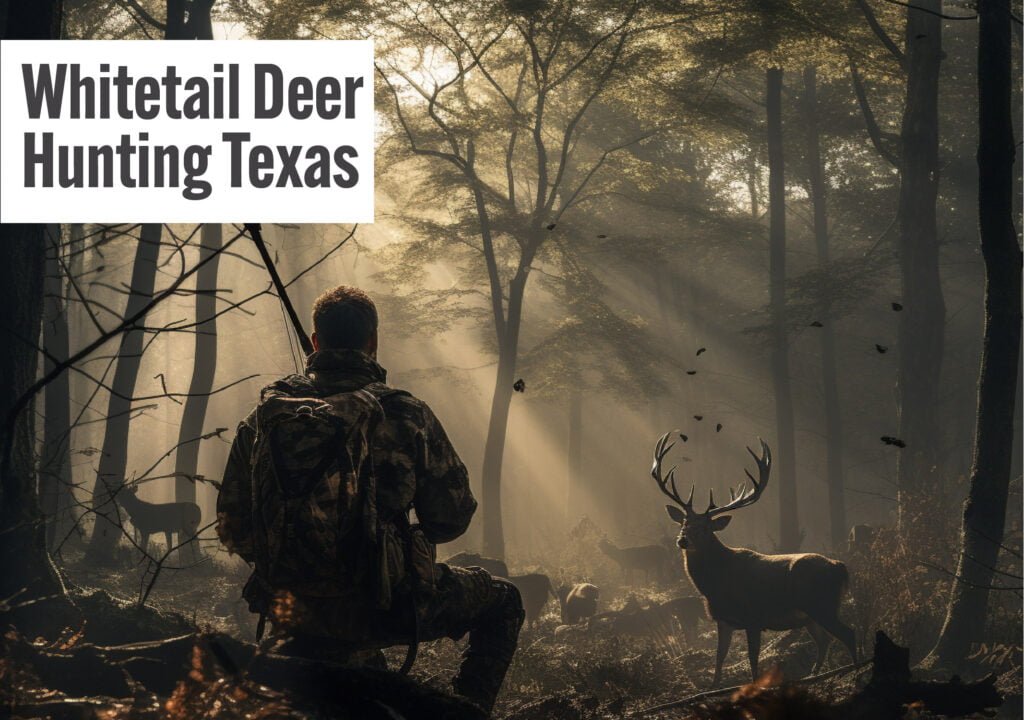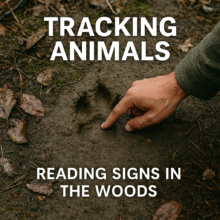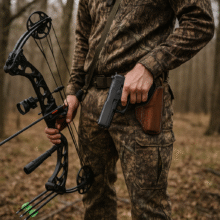The Complete Guide to Whitetail Deer Hunting in Texas

Table of Contents
Table of contents
Introduction
Hunting whitetail deer in Texas is an age-old tradition, interwoven with the tapestry of its culture and way of life. With over four million whitetail deer across its expansive landscapes, the Lone Star State offers a hunting experience like no other. Whether you’re a seasoned hunter or a novice venturing into the wilderness for the first time, this comprehensive guide will provide you with the essential knowledge and tips for a successful whitetail deer hunting experience.
An Overview of the Texas Whitetail Deer
The allure of whitetail deer hunting lies in the unique challenge they present. As one of the most sought-after game animals in Texas, they have adapted to a range of environments and developed remarkable survival instincts.
Understanding the Whitetail Deer
Whitetail deer are agile, fast, and possess highly tuned senses. They can sprint up to 30 miles per hour and are known for their distinctive “bounding” flight pattern when startled.
Distribution of Whitetail Deer in Texas
Whitetail deer are widespread across Texas, with significant populations in the brush country of South Texas, the Pineywoods of East Texas, and the scenic Hill Country in Central Texas.
The Significance of the Whitetail Deer
The whitetail deer is an iconic species in Texas and plays a pivotal role in its ecosystems. The hunting of this animal also brings substantial revenue to the state’s economy.
Pre-Hunt Preparations
Preparing for a whitetail deer hunt involves thorough planning and preparation. This includes understanding your quarry, selecting appropriate gear, and familiarizing yourself with Texas hunting regulations.
Scouting: Your First Step
Scouting is the cornerstone of successful hunting. Understand the deer’s movement patterns, food and water sources, and bedding areas. Use trail cameras to gather this valuable information.
Gear Selection: Equipping Yourself
Having the right hunting gear is critical. Depending on your hunting method, this could include firearms or bows, suitable ammunition or arrows, hunting blinds or tree stands, camouflage clothing, and binoculars.
Texas Hunting Regulations: Know the Law
Familiarize yourself with Texas hunting regulations. These cover aspects like hunting season dates, hunting hours, bag limits, and other specific regulations pertaining to whitetail deer hunting.
Hunting Strategies
Effective hunting strategies are a result of thorough scouting, understanding deer behavior, and adapting to real-time situations in the field.
Locating the Deer
Use your scouting data to locate deer. Tracks, rubs, scrapes, and droppings are signs of deer presence.
Stalking vs. Stand Hunting
The choice between stalking—moving slowly and silently to get a shot at a deer—and stand hunting—waiting in one spot for a deer to come to you—depends on your personal preference and the terrain.
Timing Your Hunt
Time your hunt to coincide with peak deer movement. Typically, this is during early morning and late afternoon hours. The rut (mating season) is another period of increased activity.
The Moment of Truth – Making Your Shot
Once you’ve located a deer and are within shooting distance, the moment of truth arrives. Your aim, shot placement, and the choice of firearm or bow will determine the outcome.
Firearm Hunting: Choosing the Right Caliber
The choice of caliber for whitetail deer hunting depends on a variety of factors including personal preference, shooting ability, and the size of the deer in your hunting area.
Bow Hunting: Harnessing the Ancient Skill
Bow hunting requires more skill and offers a different thrill. It requires precise shot placement and usually a closer approach to the deer.
Making a Clean, Humane Shot
Ethical hunting mandates that every shot you take should be intended to bring down the deer as quickly and humanely as possible.
After the Shot – Tracking and Field Dressing
Taking the shot is just part of the hunting process. Tracking the deer after the shot and properly field dressing it is equally crucial.
Tracking the Deer
If the deer doesn’t drop instantly, wait for a while to let the deer expire before you start tracking it. Look for signs like blood trails and broken vegetation.
Field Dressing: Preserving the Meat
Field dressing the deer as soon as possible is crucial to ensure the meat doesn’t spoil. This involves removing the deer’s internal organs to cool the body cavity.
Conclusion
Whitetail deer hunting in Texas offers an unrivaled outdoor experience. With proper planning, preparation, and an understanding of the deer and their environment, hunters can look forward to an unforgettable hunting adventure.
Frequently Asked Questions
1. What is the best time of year for whitetail deer hunting in Texas?
Whitetail deer hunting season in Texas typically begins in November and can extend into January. It varies depending on the county and method of hunting, so check the Texas Parks & Wildlife Department website for specific dates.
2. How many whitetail deer can I legally harvest in Texas?
Bag limits for whitetail deer in Texas vary by county, so you’ll need to refer to the Texas Parks & Wildlife Department’s county-specific regulations for details.
3. What are some popular areas to hunt whitetail deer in Texas?
The South Texas brush country, the Hill Country, and the Pineywoods of East Texas are known for their abundant whitetail deer populations.
4. Do I need permission to hunt on private property in Texas?
Yes, hunting on private property without the owner’s permission is illegal in Texas. Make sure to secure permission or lease hunting rights before you hunt.
5. What type of weapon is best for whitetail deer hunting in Texas?
This is largely a matter of personal preference. Some hunters prefer the long-range precision of a rifle, while others prefer the challenge and closer engagement that comes with using a bow.







